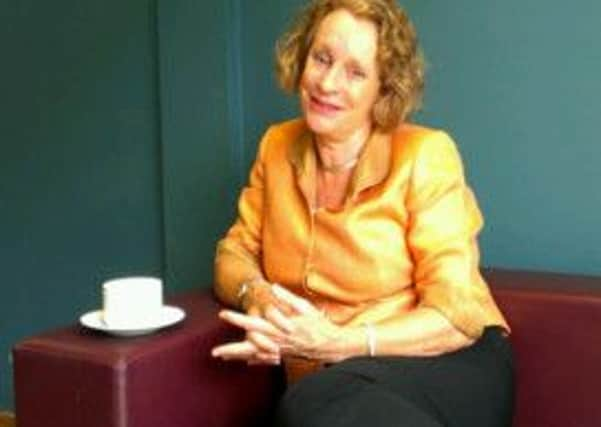Philippa Gregory’s novel approach


Speaking at Newtownabbey’s Theatre at the Mill during her book tour to promote new novel ‘The King’s Curse’, the historical novelist said that the success of her novels, many of which focus on the Tudor reign and War of the Roses in the fourteenth and fifteenth centuries, was due to the public’s continuing fascination with this “genuinely interesting period of history.”
She told the Times: “I tell a story that people probably know but I find the characters and explore their world. So, for instance, in The King’s Curse the story is told through the eyes and in the voice of Margaret Pole, Countess of Salisbury. People haven’t spent much time exploring who she is and what her life was like. That’s despite the fact that she is extremely interesting and involved in the heart of the court life and also the treasons against Henry VIII. A novel is about an individual’s personal change and one of the ways that people change most dramatically and rapidly is when they are in danger, and that’s the case of Margaret Pole in The King’s Curse, fighting for her life.”
Advertisement
Hide AdAdvertisement
Hide AdMs Gregory spends a year conducting in-depth research for each novel and immersing herself in her characters’ world before putting pen to paper. She added: “Only when I feel like I know the character and I have an idea about what they look like, I don’t have to look something up about them, I’ve got them into my head, only then do I feel free to start writing and then of course I go on doing more research while I’m writing.”


Ms Gregory - who has a degree in History and a PhD in English Literature - said: “I know my novels make history more accessible and open it up to the public because people come up and tell me that they are doing history degrees when they wouldn’t have read history otherwise. They come up and tell me that they are going back to study when they had left study, they tell me that they are reading history as well as historical fiction and an awful lot of people tell me that they are reading historical fiction for the first time and learning the history through that so I’m comfortable that people find a way into history through my novels. But I’m really conscious that they are novels. It’s not that I think it’s an easy way to write history, I think it’s actually a much harder way to write history because you’re involved in two sets of crafts. One is the craft of historical research and one is the really interesting, complicated art form of literature.
“These are not natural bed fellows, it’s interesting to try and do a really, really good historical novel,” she said.
Ms Gregory’s novel The Other Boleyn Girl was turned into a film starring Scarlett Johansson, Natalie Portman and Eric Bana, while her novel The White Queen was adapted into a TV series and screened in the UK and USA last year.
Advertisement
Hide AdAdvertisement
Hide AdDespite having examined the major female characters of the Tudor, Plantagenet and Neville families, Gregory says that there is no danger she will run out of historical heroines soon. She continued: “The really interesting thing is that when I started this I kept going, ‘oh I’ve just discovered a really exceptional woman and then I discover another really exceptional woman and then you discover another. After a little while you go, it cannot be that these are really extraordinary women, it must be that most of the women in positions of power at the time were truly impressive characters and it’s just that the traditional history, the conventional history, hasn’t much bothered with them yet. But as you look for them, you find more and more.”
Regarding the protagonist of her next book, Ms Gregory revealed: “I’m going to study Catherine Parr. She’s obviously Henry’s last Queen, the one who survived him. I’m sure that he would have brought a charge of treason and heresy against her sooner or later if he had lived. I think she’s an extraordinary character- she’s the first English woman to publish publicly at all, so in her own right that would be a woman of extraordinary historical interest, and she’s also married to Henry VIII, so she’s going to be a really, really great character to research.”
As for advice to aspiring novelists, Ms Gregory commented: “Don’t think it’s something you can learn and then do-it’s a lifetime study. Writing fiction as I think it should be written, writing historical fiction requires the whole craft of history, writing novels requires a real commitment to improving every time. So my advice is always to read as much as you possibly can of really good material and then write as well as you possibly can. And then probably tear it up, and write again!”
The next event in the ‘Conversations at the Mill’ series at Theatre at the Mill will be ‘Girls Night Out’ featuring Jill Mansell, Katie Fforde, Cathy Kelly and Tasmina Perry on October 16. Best-selling American author Jodi Picoult will appear on November 9.